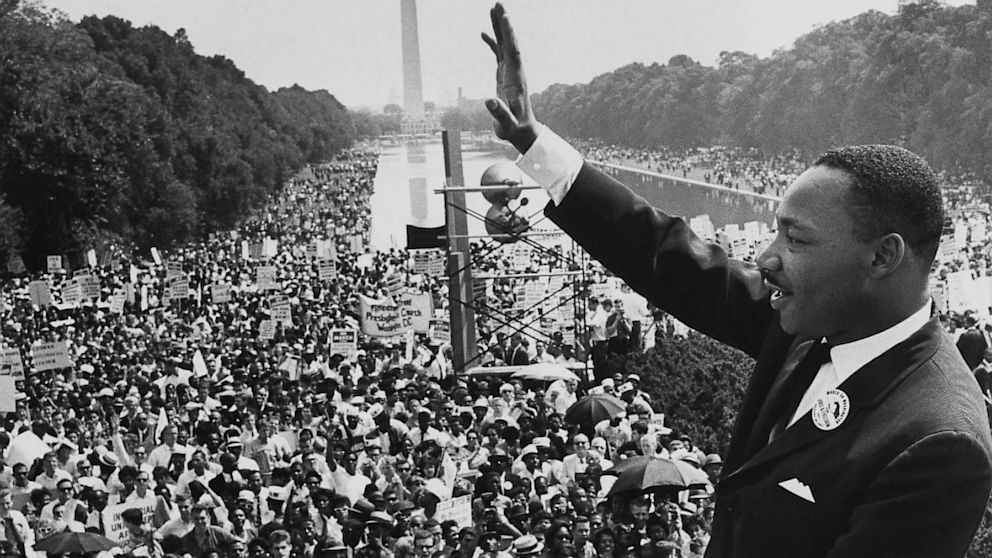Remembering King
POSTED January 9, 2018
The man before the fight
Born on January 15, 1929, in Atlanta Georgia, Martin Luther King Jr. would become a household name by 1960. From an early age, King’s father discouraged any sense of class superiority, which would leave a lasting impression on Martin.
Martin entered public school at the age of five and was baptized when he was seven. However, it had little effect on young Martin. When he was 12 years old, his grandmother died of a heart attack. Shortly after the traumatic event, he allegedly attempted suicide because he was out watching a parade against his parents’ desires at the time the death took place.
In Martin’s teenage years, he attended Booker T. Washington High School. A bright student from a young age, Martin skipped the ninth and eleventh grade and was able to enroll in Morehouse College in Atlanta by the age of 15. In an attempt to rebel against his father’s strict rules, Martin drank beer and played pool during his time in college. His first two years at Morehouse were uneventful, and Martin was said to be an unmotivated student who just floated through the semesters.
Unlike his father, Martin Luther King Jr. was initially uncomfortable with overly emotional displays of religious worship. This made him lose faith and led him to decide against entering the ministry as his father had. However, in his junior year in college, Martin took a Bible class, which renewed his faith, and he would later decide to enter the ministry. By 1948, Martin Luther King Jr. had earned a sociology degree.
For his doctoral study, King was accepted into Yale, but decided to go to Boston University. While working towards his doctorate, King met Coretta Scott. They married in June 1953 and had four children. Before completing his PhD in 1955 at the age of 25, King became pastor of the Dexter Avenue Baptist Church in Montgomery, Alabama.
The fight for racial equality
Martin Luther King Jr. began his fight for racial equality once Rosa Parks famously refused to give up her seat on a bus and was subsequently arrested for her actions. King and other local civil rights activists began planning a citywide bus boycott. Because he was young and had professional standing, Martin was elected to lead the boycott.
After giving his first speech as the group’s leader, Martin Luther King Jr. was able to light a flame of energy into the civil rights struggle through his persuasive writing. The bus boycott would last 382 days, during which King’s home would also be attacked. Finally, after the African-American community took legal action against the city, citing the Supreme Court’s “Separate is never equal” ruling in Brown V. Board, Montgomery lifted the law that mandated segregated public transportation.
Moving forward in January 1957, King and 60 others founded the Southern Christian Leadership Conference in order to organize the power of black churches. This organization gave him a national platform and by 1960 he was gaining national notoriety.
After King visited Gandhi’s birthplace in India, he was inspired to increase his commitment to America’s civil rights struggle. On October 19, 1960, Martin Luther King Jr. and 75 students entered a store and requested lunch-counter service but were denied. They refused to leave, so King and 36 others were arrested. After negotiating, the charges were dropped because the city feared for its reputation. However, King was later imprisoned for violating his probation on a traffic conviction. John F. Kennedy, a presidential candidate at the time, called Coretta Scott King to express his concern for King’s harsh treatment for the traffic violation. King was released soon after.
Later on August 28, 1963, King organized a massive demonstration with multiple other organizations. The historic March on Washington drew more than 200,000 people. It was here that King’s famous speech, “I Have a Dream,” emphasized his belief that all people should be equals.
After organizing several other protests, King was beginning to feel worn out. By 1968, he was becoming discouraged by the slow progress of civil rights in America. On April 3, he gave his final speech, “I’ve Been to the Mountaintop.” The next day, Martin Luther King Jr., standing on a balcony outside his room, was shot by a sniper’s bullet.
Becoming a lasting legacy
Almost fifty years after his assassination, King is still revered for his efforts in improving social equality in the United States. He is the most widely known African-American leader of his era. On the third Monday of January each year, Martin Luther King Jr. Day is observed by the United States in an effort to remember all of his work to improve lives. A visionary leader, Martin Luther King Jr. was committed to achieving racial equality and has helped to make the world a better place.
